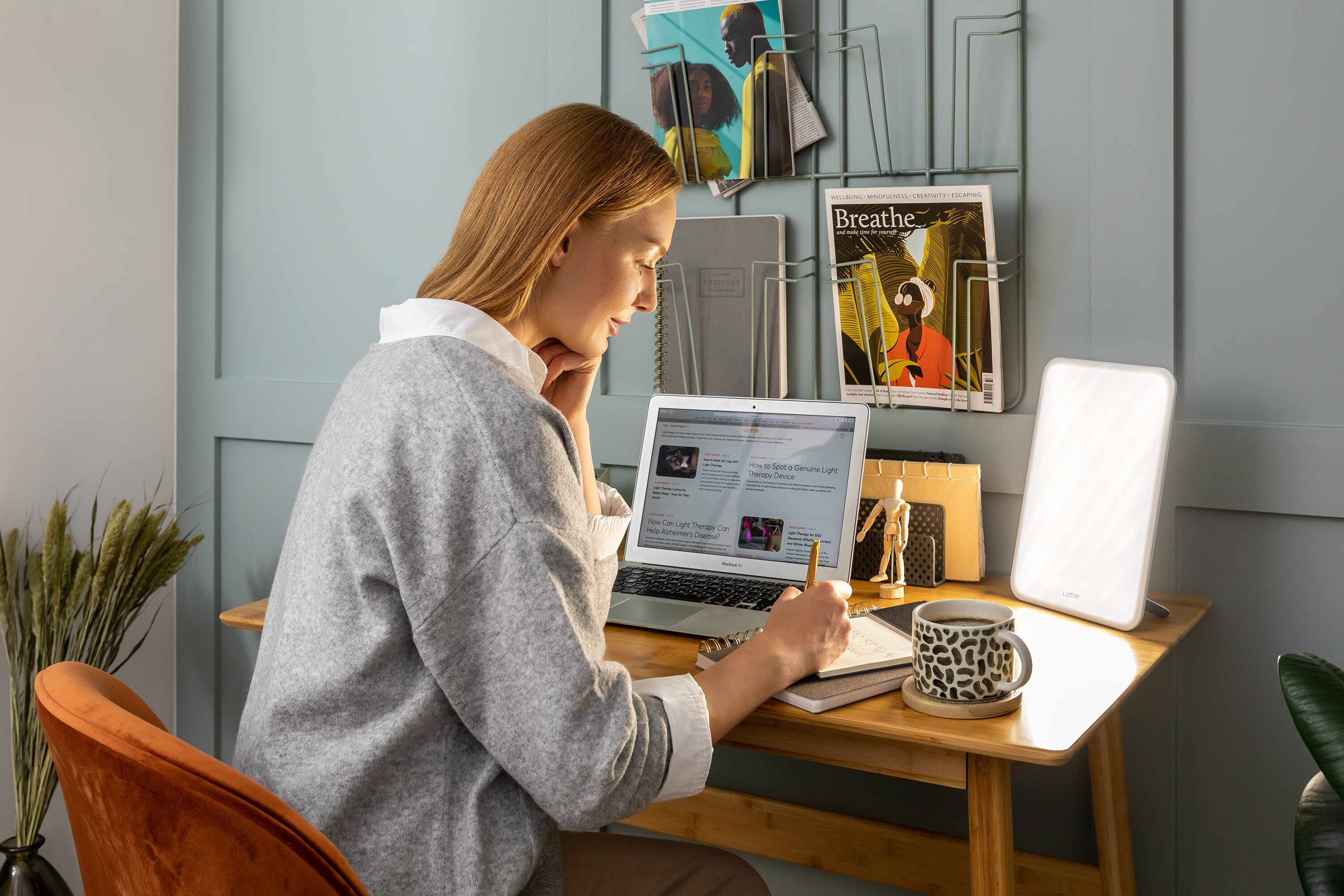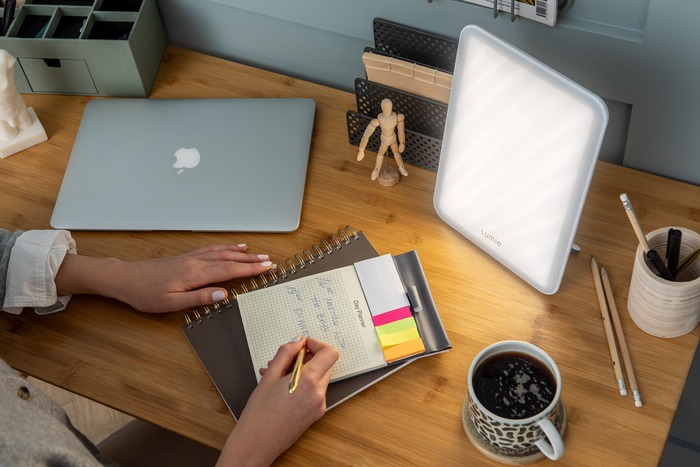How to Look After Your Wellbeing While Working from Home

If you’re struggling to find the motivation to maintain your productivity during the shorter, darker days, Lauren Gordon, Behavioural Insights Advisor at Bupa, has compiled her top tips for looking after your physical and mental health while WFH.
Whether you love or hate it, working from home has become the norm. Without the normal routine of commuting or socialising with colleagues, it can be difficult to prioritise your wellbeing during long spells of remote working. Add winter into the WFH mix and your energy and motivation levels can become non-existent.
Lumie light therapy lamps and wake-up lights play an important role in structuring your day, from the minute you wake up to the moment your head hits the pillow. Our range of wake-up lights help regulate your circadian rhythm, while our light therapy lamps provide bright light therapy to help boost mood and productivity – crucial when working from home!
While we already know the benefits of using light therapy while working from home and office, read on for Lauren Gordon’s top tips on looking after your WFH /wellbeing this winter.
Keeping the same routine that you have when you go into the office helps you to transition better into ‘work mode’ mentally. You might find it helpful to go for a short walk before and after work to help create the structure of a working day.
To help make sure you do some exercise, put your gym kit on as soon as you get out of bed. You’ll find that being ready to exercise will encourage you to do something active. You’ll be much more motivated to go for a jog on your lunch break when you’re already dressed to go as you have committed yourself to it. Another tip is to make use of the commute time you had previously to do some exercise, whether that’s before work or afterwards. Even a short walk can be helpful to get moving and break up your day.
Lots of people find that when working from home they tend to sit for long periods of time. However, you should take short, regular breaks to help prevent aches, pains and eye strain. You could also think about whether you can take calls as walking meetings. If you have a catch-up scheduled with a colleague, you might agree to both go for a walk while you talk on the phone.
It’s important to look after your posture when you’re working from home. So, tempting as it may be, this means not sitting on the sofa with your laptop on your knees. If possible, sit at a kitchen or dining table if you don’t have a designated office space. Your seat should be close to your desk or table and your feet fully on the floor. Keep your shoulders relaxed and your elbows at a 90-degree angle just above the tabletop.
Working at home can make it harder to eat a healthy, balanced diet, but there are some things you can do help yourself stay on track. When it’s lunch time, take the time to prepare a healthy meal rather than just eating bits and pieces from the fridge or cupboard. You might find it helpful to plan your meals in advance so that you don’t find yourself having to make decisions when you are already hungry.
While there are benefits to working from home, you might also find it lonely or isolating. Many of us work better face-to-face and miss seeing our colleagues in person. You could also use your breaks to meet up with colleagues or friends who also work from home. This could be as simple as grabbing a coffee or going for a short walk.
When your home becomes your workspace, it’s important to be mindful that those lines don’t blur too much. It can be harder to switch off when you don’t ‘leave the office’ and it can lead to working longer hours. It’s important to make that mental transition between work and home. Make sure you set a boundary and pack up properly when it’s time.
While working from home does have its challenges, seek out the positives where you can. A more flexible approach can give you control over your environment and the hours you work. And not having to commute is always a bonus too. Plus, not getting home late means there’s more time to plan something enjoyable into your evening. Adapting to working from home is a bit of a trial and error, especially in the current situation.

